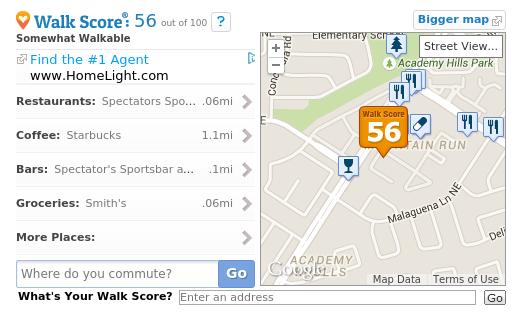T he Robo-signing settlement was finalized in February of 2012, and the major benefactors were supposed to be homeowners in need of mortgage relief as well as people who lost their homes to foreclosure, potentially because of mortgage and bank errors. It was discovered that mortgage companies and banks were rushing through the process on many of the homes they foreclosed on, neglecting to check important paperwork and take care of their due diligence. Homeowners were assured they would get relief as a result of this settlement, either by modifying their mortgages or unloading their homes through short sales instead of foreclosure and other remedies. There has been little news about how advantageous this settlement has been to homeowners who are still struggling with mortgage payments and those who lost their homes anyway.
he Robo-signing settlement was finalized in February of 2012, and the major benefactors were supposed to be homeowners in need of mortgage relief as well as people who lost their homes to foreclosure, potentially because of mortgage and bank errors. It was discovered that mortgage companies and banks were rushing through the process on many of the homes they foreclosed on, neglecting to check important paperwork and take care of their due diligence. Homeowners were assured they would get relief as a result of this settlement, either by modifying their mortgages or unloading their homes through short sales instead of foreclosure and other remedies. There has been little news about how advantageous this settlement has been to homeowners who are still struggling with mortgage payments and those who lost their homes anyway.
The National Mortgage Settlement Act required the country’s largest banks to help their borrowers stay out of foreclosure. However, the housing situation is still so volatile and confusing, many homeowners are unsure about what they qualify for and what options are on the table. Most of them are hesitant to approach their lenders for any kind of modification, and refinancing is difficult because home values remain low while mortgage payments and costs continue to soar.
Homeowners who have not yet taken advantage of the robo-signing settlement should do what they can to benefit from this national action. Unlike the Home Affordability Modification Program (HAMP), this program is paid for entirely by the banks. If you asked for a modification before this settlement was reached and you were denied, ask again. The country’s largest financial institutions have been called upon in the courts to make it easier for you to keep your home. If loan modification is not enough to help you, talk about the option of a short sale so you do not have to endure a foreclosure. When you sell your house in a short sale, you will still be without a home to live in, but the credit damage and the blow to your financial security will be slightly less with a short sale. You can also work with your bank on negotiating your move-out date and, in some cases, getting a bit of financial help to find a new place to live, especially if you leave your house in good condition.
Politically and financially, nearly everyone agreed that the robo-signing settlement was a good thing for consumers, homeowners and the country as a whole. The only flaw has been in the administration of the settlement. Funds are available for the banks and mortgage companies to modify loans and work with their borrowers to keep them in their houses or release them through short sales, but the programs are not being utilized as much as they could be. If you find yourself struggling with your mortgage because of an interest rate that is too high, monthly payments that are out of reach, or any other reason, talk to your lender and ask for help.
When you’re ready to speak to a lender about getting pre-qualified for your new home, contact one of my professional mortgage brokers. And if you have any questions about selling or buying a home in metro Albuquerque, be sure to contact me today!
This post was written for Growing Money by Stephen K Hachey. Stephen is a licensed Tampa real estate lawyer specializing in loan modifications, short sales, foreclosure and much more. He is also the owner of his own practice, the Law Offices of Stephen Hachey, PA. This article is for general informational purposes only and does not establish an attorney-client relationship. Please contact a licensed attorney in your state of residence. For more information on our services, please visit our website at floridarealestatelawyer.org
 Housing is one the major issues concerning the U.S. government recently. For that reason, several preventive measures have been developed to keep the soaring number of foreclosures under permissible limit. Some of the more prominent ones are discussed in this article.
Housing is one the major issues concerning the U.S. government recently. For that reason, several preventive measures have been developed to keep the soaring number of foreclosures under permissible limit. Some of the more prominent ones are discussed in this article.  So what’s really out there these days for home financing? Between the news, friends, family, talks in shopping lines, etc., does anyone know if they even want to consider buying or refinancing a home for a lower payment? It can be a challenge. Many changes have occurred in the industry with more to come.
So what’s really out there these days for home financing? Between the news, friends, family, talks in shopping lines, etc., does anyone know if they even want to consider buying or refinancing a home for a lower payment? It can be a challenge. Many changes have occurred in the industry with more to come. You may be able to afford more home than you wish to spend. Start out with an idea of how much of your income will be left after the mortgage payment and utilities. This is the amount you will have for everything else you want and need your income to cover: food, clothing, car payments, insurance, social activities, etc.
You may be able to afford more home than you wish to spend. Start out with an idea of how much of your income will be left after the mortgage payment and utilities. This is the amount you will have for everything else you want and need your income to cover: food, clothing, car payments, insurance, social activities, etc.  Even if you have a handyman on speed dial, having a basic set of tools in your home is always a good idea.
Even if you have a handyman on speed dial, having a basic set of tools in your home is always a good idea. Congratulations! You’ve found your perfect home and you’re getting ready to move into it. You’re feeling excited and looking forward to starting your new life in your new home. With all the excitement surrounding your move, it can be difficult to stay focused on the things you need to do to make the move a success.
Congratulations! You’ve found your perfect home and you’re getting ready to move into it. You’re feeling excited and looking forward to starting your new life in your new home. With all the excitement surrounding your move, it can be difficult to stay focused on the things you need to do to make the move a success.  Many clients have asked me over the years how to figure out just how much house they can afford. There’s so much more than the purchase price to consider when determining how much house you can actually afford. For example, consider the following items as typical expenses in home ownership:
Many clients have asked me over the years how to figure out just how much house they can afford. There’s so much more than the purchase price to consider when determining how much house you can actually afford. For example, consider the following items as typical expenses in home ownership:
biz page or profile.